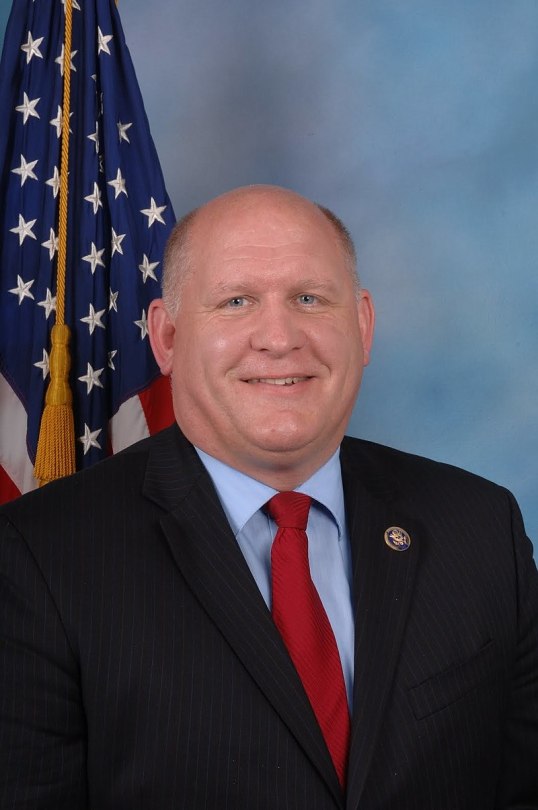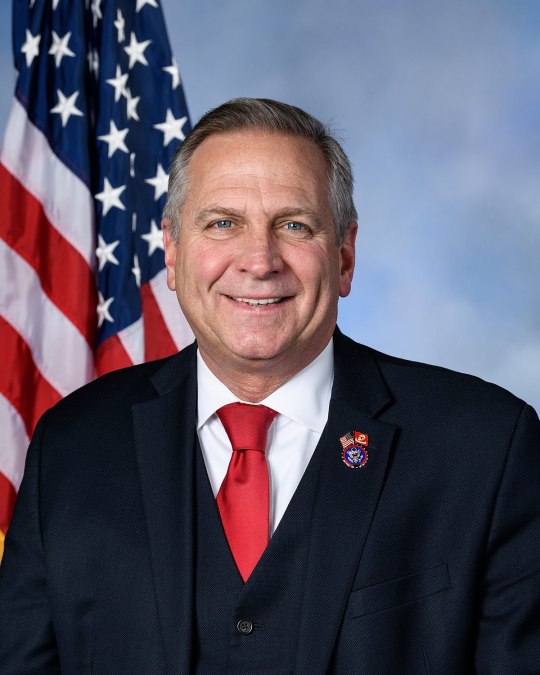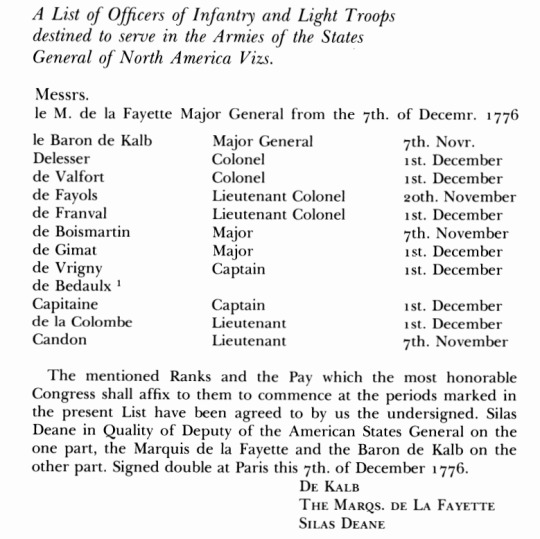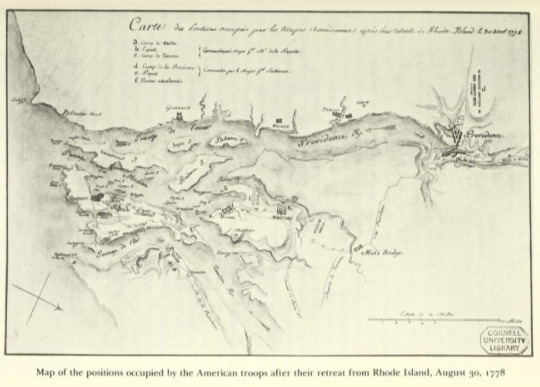#carolina ale house
Text
this house may or may not be real
on grayness in real estate
Allegedly, somewhere in Wake Forest, North Carolina, a 4 bed, 5.5 bathroom house totaling more than 6,600 square feet is for sale at a price of 2.37 million dollars. The house, allegedly, was built in 2021. Allegedly, it looks like this:

A McMansion is, in effect, the same house over and over again - it's merely dressed up in different costumes. In the 90s, the costume was Colonial; in the 2000s, it was vague forms of European (Tuscan, Mediterranean), and in the 2010s it was Tudor, dovetailed by "the farmhouse" -- a kind of Yeti Cooler simulacra of rural America peddled to the populace by Toll Brothers and HGTV.
Now, we're fully in the era of whatever this is. Whitewashed, quasi-modern, vaguely farmhouse-esque, definitely McMansion. We have reached, in a way, peak color and formal neutrality to the point where even the concept of style has no teeth. At a certain moment in its life cycle, styles in vernacular architecture reach their apex, after which they seem excessively oversaturated and ubiquitous. Soon, it's time to move on. After all, no one builds houses that look like this anymore:

(This is almost a shame because at least this house is mildly interesting.)
If we return to the basic form of both houses, they are essentially the same: a central foyer, a disguised oversized garage, and an overly complex assemblage of masses, windows, and rooflines. No one can rightfully claim that we no longer live in the age of the McMansion. The McMansion has instead simply become more charmless and dull.
When HGTV and the Gaineses premiered Fixer Upper in 2013, it seemed almost harmless. Attractive couple flips houses. Classic show form. However, Fixer Upper has since (in)famously ballooned into its own media network, a product line I'm confronted with every time I go to Target, and a general 2010s cultural hallmark not unlike the 1976 American Bicentennial - both events after which every house and its furnishings were somehow created in its image. (The patriotism, aesthetic and cultural conservatism of both are not lost on me.)
But there's one catch: Fixer Upper is over, and after the Gaineses, HGTV hasn't quite figured out where to go stylistically. With all those advertisers, partners, and eyeballs, the pressure to keep one foot stuck in the rural tweeness that sold extremely well was great. At the same time, the network (and the rest of the vernacular design media) couldn't risk wearing out its welcome. The answer came in a mix of rehashed, overly neutral modernism -- with a few pops of color, yet this part often seems omitted from its imitators -- with the prevailing "farmhouse modern" of Magnolia™ stock. The unfortunate result: mega-ultra-greige.
Aside from war-mongering, rarely does the media manufacture consent like it does in terms of interior design. People often ask me: Why is everything so gray? How did we get here? The answer is because it is profitable. Why is it profitable? I'd like to hypothesize several reasons. The first is as I mentioned: today's total neutrality is an organic outgrowth of a previous but slightly different style, "farmhouse modern," that mixed the starkness of the vernacular farmhouse with the soft-pastel Pinterest-era rural signifiers that have for the last ten years become ubiquitous.
Second, neutrals have always been common and popular. It's the default choice if you don't have a vision for what you want to do in a space. In the 2000s, the neutrals du jour were "earth tones" - beige, sage green, brown. Before that, it was white walls with oak trim in the 80s and 90s. In the 70s, neutrals were textural: brick and wood paneling. We have remarkably short memories when it comes to stylistic evolution because in real time it feels incremental. Such is the case with neutrals.
Finally, the all-gray palette is the end logic of HGTV et al's gamified methodology of designing houses with commodification in mind: if you blow out this wall, use this color, this flooring, this cabinetry, the asking price of your house goes up. You never want to personalize too much because it's off-putting to potential buyers. After twenty years of such rhetoric, doesn't it make all the sense in the world that we've ended up with houses that are empty, soulless, and gray?
A common realtor adage is to stage the house so that potential buyers can picture their own lives in it. In other words, create a tabula rasa one can project a fantasy of consumption onto. Implied in that logic is that the buyer will then impose their will on the house. But when the staged-realtor-vision and general-mass-market aesthetic of the time merge into a single dull slurry, we get a form of ultra-neutral that seems unwelcoming if not inescapable.
To impose one's style on the perfect starkness is almost intimidating, as though one is fouling up something untouchable and superior. If neutrality makes a house sell, then personality - at all - can only be seen as a detriment. Where does such an anti-social practice lead us? Back to the house that may or may not exist.

In my travels as McMansion Hell, I've increasingly been confronted with houses full of furniture that isn't real. This is known as virtual staging and it is to house staging as ChatGPT is to press release writing or DALL-E is to illustration. As this technology improves, fake sofa tables are becoming more and more difficult to discern from the real thing. I'm still not entirely sure which of the things in these photos are genuine or rendered. To walk through this house is to question reality.

Staging ultimately pretends (sometimes successfully, sometimes not) that someone is living in this house, that you, too could live in it. Once discovered, virtual staging erases all pretensions: the house is inhabited by no one. It is generally acknowledged (though I'm not sure on the actual statistics) that a house with furniture - that is, with the pretense of living -- sells easier than a house with nothing in it, especially if that house (like this one) has almost no internal walls. Hence the goal is to make the virtual staging undiscoverable.
If you want to talk about the realtor's tabula rasa, this is its final form. Houses without people, without human involvement whatsoever.

But what makes this particular house so uncanny is that all of these things I've mentioned before: real estate listing photography, completely dull interiors and bland colors all make it easy for the virtual furniture to work so well. This is because the softness of overlit white and gray walls enables the fuzzy edges of the renderings to look natural when mixed with an overstylized reality. Even if you notice something's off in the reflections, that's enough to cause one to wonder if anything in the house is real: the floors, the fixtures, the moulding, the windows and doors.

This is where things are heading: artifice on top of artifice on top of artifice. It's cheap, it's easy. But something about it feels like a violation. When one endeavors to buy a house, one assumes what one is viewing is real. It's one thing if a realtor photoshops a goofy sunset, it's another to wonder if anything in a room can be touched with human hands. I won't know what, if any, part of this estate costing over 2 million dollars actually exists until I visit it myself. Perhaps that's the whole point - to entice potential buyers out to see for themselves. When they enter, they'll find the truth: a vast, empty space with nothing in it.

The better this rendering technology gets, the more it will rely on these totally neutral spaces because everything matches and nothing is difficult. You are picking from a catalog of greige furniture to decorate greige rooms. If you look at virtual staging in a non-neutral house it looks immediately plastic and out of place, which is why many realtors opt to either still stage using furniture or leave the place empty.
Due to the aforementioned photography reasons, I would even argue that the greigepocalypse or whatever you want to call it and virtual staging have evolved simultaneously and mutualistically. The more virtual staging becomes an industry standard, the more conditions for making it seamless and successful will become standardized as well.

After all, real staging is expensive and depends on paid labor - selecting furniture, getting workers to deliver and stage it, only to pack it back up again once the property is sold. This is a classic example of technology being used to erase entire industries. Is this a bad thing? For freelance and contract workers, yeah. For realtors? no. For real estate listings, it remains to be seen. For this blog? Absolutely. (Thankfully there is an endless supply of previously existing McMansions.)

The thing is, real estate listings no longer reflect reality. (Did they ever to begin with?) The reason we're all exasperated with greige is because none of us actually live that way and don't want to. I've never been to anyone's house that looks like the house that may or may not exist. Even my parents who have followed the trends after becoming empty nesters have plenty of color in their house. Humans like color. Most of us have lots of warmth and creativity in our houses. Compare media intended for renters and younger consumers such as Apartment Therapy with HGTV and you will find a stark difference in palate and tone.
But when it comes to actually existing houses - look at Zillow and it's greige greige greige. So who's doing this? The answer is real estate itself aided by their allies in mass media who in turn are aided by the home renovation industry. In other words, it's the people who sell home as a commodity. That desire to sell has for some time overpowered all other elements that make up a home or an apartment's interiority to the point where we've ended up in a colorless slurry of real and unreal.

Fortunately, after ten years or so, things begin to become dated. We're hitting the ten year mark of farmhouse modernism and its derivatives now. If you're getting sick of it, it's normal. The whole style is hopefully on its last leg. But unlike styles of the past, there's a real, trenchant material reason why this one is sticking around longer than usual.
Hence, maybe if we want the end of greige, we're going to have to take color back by force.
If you like this post and want more like it, support McMansion Hell on Patreon for as little as $1/month for access to great bonus content including extra posts and livestreams.
Not into recurring payments? Try the tip jar, because media work is especially recession-vulnerable.
10K notes
·
View notes
Text
On Sunday, Speaker of the House Mike Johnson went on television and mixed up Iran and Israel. “We passed the support for Iran many months ago,” he told Meet the Press, erroneously referring to an aid package for the Jewish state. Last night, the Fox News prime-time host Jesse Watters introduced South Dakota Governor Kristi Noem as hailing from South Carolina. I once joined a cable-news panel where one of the participants kept confusing then–Attorney General Jeff Sessions with Representative Pete Sessions of Texas. I don’t hold these errors against anyone, as they are some of the most common miscues made by people who talk for a living—and I’m sure my time will come.
Yesterday, President Joe Biden added another example to this list. In response to a question about Gaza, he referred to the Egyptian leader Abdel Fattah al-Sisi as the president of Mexico. The substance of Biden’s answer was perfectly cogent. The off-the-cuff response included geographic and policy details not just about Egypt, but about multiple Middle Eastern players that most Americans probably couldn’t even name. The president clearly knew whom and what he was talking about; he just slipped up the same way Johnson and so many others have. But the flub could not have come at a worse time. Because the press conference had been called to respond to Special Counsel Robert Hur’s report on Biden’s handling of classified documents, which dubbed the president an “elderly man with a poor memory,” the Mexico gaffe was immediately cast by critics as confirmation of Biden’s cognitive collapse.
But the truth is, mistakes like these are nothing new for Biden, who has been mixing up names and places for his entire political career. Back in 2008, he infamously introduced his running mate as “the next president of the United States, Barack America.” At the time, Biden’s well-known propensity for bizarre tangents, ahistorical riffs, and malapropisms compelled Slate to publish an entire column explaining “why Joe Biden’s gaffes don’t hurt him much.” The article included such gems as the time that then-Senator Biden told the journalist Katie Couric that “when the markets crashed in 1929, ‘Franklin Roosevelt got on the television and didn’t just talk about the princes of greed. He said, “Look, here’s what happened.”’” The only problem with this story, Slate laconically noted, was that “FDR wasn’t president then, nor did television exist.”
In other words, even a cursory history of Biden’s bungling shows that he is the same person he has always been, just older and slower—a gaffe-prone, middling public speaker with above-average emotional intelligence and an instinct for legislative horse-trading. This is why Biden’s signature moments as a politician have been not set-piece speeches, but off-the-cuff encounters, such as when he knelt to engage elderly Holocaust survivors in Israel so they would not have to stand, and when he befriended a security guard in an elevator at The New York Times on his way to a meeting with the paper’s editorial board, which declined to endorse him. And it’s why Biden’s key accomplishments—such as the landmark climate-change provisions of the Inflation Reduction Act, the country’s first gun-control bill in decades, and the expected expansion of the child tax credit—have come through Congress. The president’s strength is not orating, but legislating; not inspiring a crowd, but connecting with individuals.
That said, although Biden’s Mexico mistake might not be a demonstration of dementia, it is a warning sign of a different sort that his campaign would be wise to heed. Recently, the White House declined to have Biden participate in the traditional pre–Super Bowl interview this coming Sunday. The administration framed this decision as part of a broader strategy favoring nontraditional media, but it was reasonably seen as an attempt to shield the candidate from scrutiny. The president’s staff is understandably reluctant to put Biden front and center, knowing that his slower speed and inevitable gaffes—both real and fabricated—will feed the mental-acuity narrative. But in actuality, the bar for Biden has been set so laughably low that he can’t help but vault over it simply by showing up. By contrast, limiting his appearances ensures that the public mostly encounters the president through decontextualized social-media clips of his slipups.
As Slate observed in 2008, the frequency of Biden’s rhetorical miscues helped neutralize them in the eyes of the public. In 2024, Biden will have an assist from another source: Donald Trump. Among other recent lapses, the former president has called Hungarian Prime Minister Viktor Orbán “the leader of Turkey,” confused Nancy Pelosi and Nikki Haley, and repeatedly expressed the strange belief that he won the 2020 election. With an opponent prone to vastly worse feats of viscous verbosity, Biden can’t help but look better by comparison, especially if he starts playing offense instead of defense.
But none of this will happen by itself. If the president and his campaign want the headlines to be something other than “Yes, Biden Knows Who the President of Egypt Is,” they’ll have to start making news, not reacting to it.
54 notes
·
View notes
Text
Who voted to keep Santos in the House?

REPUBLICONS:
Alford, Missouri
Arrington, Texas
Babin, Texas
Baird, Indiana
Banks, Indiana
Bean, Florida
Biggs, Arizona
Bilirakis, Florida
Bishop, North Carolina
Boebert, Colorado
Bost, Illinois
Brecheen, Oklahoma
Buchanan, Florida
Burchett, Tennessee
Burlison, Missouri
Cammack, Florida
Carl, Alabama
Carter, Texas
Cline, Virginia
Cloud, Texas
Clyde, Georgia
Collins, Georgia
Crane, Arizona
Davidson, Ohio
DesJarlais, Tennessee
Donalds, Florida
Duncan, South Carolina
Emmer, Minnesota
Ezell, Mississippi
Fallon, Texas
Finstad, Minnesota
Fischbach, Minnesota
Fitzgerald, Wisconsin
Fleischmann, Tennessee
Fry, South Carolina
Fulcher, Idaho
Gaetz, Florida
Gallagher, Wisconsin
Good, Virginia
Gooden, Texas
Gosar, Arizona
Graves, Missouri
Greene, Georgia
Griffith, Virginia
Hageman, Wyoming
Harris, Maryland
Harshbarger, Tennessee
Hern, Oklahoma
Higgins, Louisiana
Hill, Arkansas
Huizenga, Michigan
Hunt, Texas
Issa, California
Jackson, Texas
Johnson, Louisiana
Jordan, Ohio
Kelly, Mississippi
Kustoff, Tennessee
LaMalfa, California
Lamborn, Colorado
Lee, Florida
Lesko, Arizona
Loudermilk, Georgia
Luetkemeyer, Missouri
Luna, Florida
Luttrell, Texas
Mace, South Carolina
Massie, Kentucky
Mast, Florida
McCaul, Texas
McClintock, California
McCormick, Georgia
McHenry, North Carolina
Miller, Illinois
Miller, West Virginia
Mills, Florida
Moolenaar, Michigan
Mooney, West Virginia
Moore, Alabama
Nehls, Texas
Norman, South Carolina
Ogles, Tennessee
Palmer, Alabama
Perry, Pennsylvania
Posey, Florida
Reschenthaler, Pennsylvania
Rogers, Alabama
Rosendale, Montana
Roy, Texas
Salazar, Florida
Santos, New York
Scalise, Louisiana
Self, Texas
Sessions, Texas
Smith, Missouri
Smith, Nebraska
Spartz, Indiana
Stefanik, New York
Steube, Florida
Strong, Alabama
Tenney, New York
Tiffany, Wisconsin
Timmons, South Carolina
Turner, Ohio
Van Duyne, Texas
Van Orden, Wisconsin
Walberg, Michigan
Waltz, Florida
Weber, Texas
Williams, Texas
Wilson, South Carolina
Wittman, Virginia
DEMOCRATS:
Scott, Virginia
Williams, Georgia
Who voted "present"?
DEMOCRATS:
Al Green, Texas
Jackson, Illinois
Who didn't vote?
DEMOCRATS:
Jackson Lee, Texas
Ocasio-Cortez, New York
Phillips, Minnesota
REPUBLICONS:
Crawford, Arkansas
Johnson, Ohio
Kelly, Pennsylvania
McCarthy, California
Rodgers, Washington
21 notes
·
View notes
Text
Trump wants Russia to attack our allies. Is it any wonder why he's Putin's favored candidate for president?
Having an ignoramus pawn of Putin as commander-in-chief is not good for national security or international stability.
Seeking a second presidency as the Republicans’ presumptive 2024 White House nominee, Donald Trump has said he would “encourage” Russia to attack any of the US’s Nato allies whom he considers to have not met their financial obligations.
The White House described the remarks as “appalling and unhinged”. Trump made the statement on Saturday during a campaign rally in Conway, South Carolina, ahead of the state’s Republican presidential preference primary on 24 February.
The former president has voiced misgivings about aid to Ukraine as it defends itself from the invasion launched by Russia in February 2022 – as well as to the existence of Nato, the 31-nation alliance which the US has committed to defending when necessary.
Being the dumbass he is, Trump doesn't understand that NATO is a mutual defense pact. After 9/11 NATO countries provided logistical aid and even troops when the US overthrew the pro-al-Qaeda régime in Afghanistan and took into custody many of the planners of the 9/11 terror attacks.
Trump’s remarks on Saturday quickly raised alarm among many political pundits in the US.
“Sounds as if Trump is kind of encouraging Russia to attack our Nato allies,” David Corn – an MSNBC analyst and the Washington DC bureau chief of Mother Jones – said on X.
Meanwhile, conservative political commentator Alyssa Farah Griffin said Trump’s comments were “music” to the ears of Russian leader Vladimir Putin
Something Trump doesn't tell his MAGA zombie followers is that military expenditures of NATO countries have gone way up during the Biden administration.
From last July...
NATO Details Leap in Member Defense Spending Ahead of Summit
Is Trump just butthurt that Biden has had greater success at increasing NATO member defense expenditures? That does make Trump look even more like a loser.
More likely Trump is simply doing Putin's bidding in helping to weaken Europe in order to spread Russian hegemony.
Under Biden, NATO is not only growing in strength but growing in membership. Finland joined NATO last April. Sweden is set to join this year.
Many of our NATO allies have excellent intelligence services. Undoubtedly some of them have picked up "dirt" on Trump over the past dozen or so years. It would be a shame for Trump if some of that dirt somehow became public later this year. Europe should show the same love for Trump which he has been showing them. 🙂
#donald trump#vladimir putin#russia#nato#trump encourages putin to attack nato countries#international security#the trump “pee tapes”#election 2024
14 notes
·
View notes
Text
Top 10 Representatives (2023)
This post is for 'Top 10 Representatives' I'd like to fuck and is purely based on appearance, not politics. If you don't agree, either scroll onwards, post your own idea or try another blog.
10. Rep. Jerry Carl (R-AL 1st District)

An American politician and businessman serving as the U.S. Representative for Alabama’s 1st congressional district since 2021. Nothing to base this on, but Jerry looks like he could be had, if offered… THE DICK.
9. Rep. John Carter (R-TX 31st District)

Damn… they grow them hot in Texas. The U.S. Representative for Texas’s 31st congressional district, serving since 2003. Nicknamed Judge, Carter is falls in my ‘loves to fuck’ theory and he does look like he loves to fuck.
8. Rep. James Comer (R-KY 1st District)

An American politician from the Commonwealth of Kentucky who currently represents the state’s 1st congressional district in the United States House of Representatives. Something tells me he could be a great cocksucker. Just look at those lips. What? I’m not saying he is… just that he could be and I'd love to find out.
7. Rep. Jim Baird (R-IN 4th District)

An American businessman and politician serving as the U.S. representative for Indiana’s 6th congressional district since 2019. The best looking Pence brother from his silver hair, down to his nice legs and his various shoes.
6. Rep. Ken Calvert (R-CA 41st District)

An American businessman and politician serving as the U.S. representative for California's 41st congressional district. Married young divorced not long after, no new wife or lady friend that I could find. He has a cute little dog he dresses up and carries around with him all the time. I might be projecting, but I think my chances are high with this one.
5. Greg Pence (R-IN 6th District)

An American businessman and politician serving as the U.S. representative for Indiana’s 6th congressional district since 2019. The best looking Pence brother from his silver hair, down to his nice legs and his various shoes.
4. Jeff Duncan (R-SC 3rd District)

An American politician who has been the United States representative for South Carolina's 3rd congressional district since 2011. Well, all I can say is this man is almost perfect for me. Why not perfect? He's not naked and in my bed with my jizz all over him. What? Then he’d be perfect.
3. Rep. Glenn Thompson (R-PA 15th District)

An American politician serving as the U.S. representative for Pennsylvania's 15th congressional district since 2019. Nice and manly, he looks like he would be a champion in bed.
2. Rep. Don Bacon (R-NE 2nd District)

An American politician and retired military officer serving as the U.S. representative for Nebraska's 2nd congressional district since 2017. Handsome, nice tits and body. This man is husband material. Better yet, trophy husband material. The type of guy you can walk into a room with him on your arm, telling everyone “Yeah… I’m fucking this.”
1. Rep. Mike Bost (R-IL 12th District)

An American politician. This man is almost perfect. The only thing wrong with him is that he isn’t in my bed. Nice build, nice dresser and a very handsome face.
HONORABLE MENTIONS:
Rep. Kevin McCarthy (R-CA 20th District)
Rep. Mike Rogers (R-AL 3rd District)
Rep. Steny Hoyer (D-MD 5th District)
#top 10 list#top ten list#american politician#politician#us representative#celebrities#pilf#jerry carl#john carter#don bacon#mike bost#glenn thompson#jeff duncan#greg pence#jim baird#james comer
30 notes
·
View notes
Text
Week 1
Blue Moon, The Marcells - I Only Have Eyes For You, The Flamingos
We Wanna Boogie, Sonny Burgess - Heartbreak Hotel, Elvis Presley
Tutti Frutti, Little Richard - Santa Baby, Eartha Kitt
Beyond the Sea, Bobby Darin - Rockin Robin, Bobby Day
El Paso, Marty Robbins - Be Bop a Lula, Gene Vincent
Get a Job, The Silhouettes - Shout, The Isley Brothers
Tequila, The Champs - Who Do You Love, Bo Diddley
Unforgettable, Nat King Cole - Secret Love, Doris Day
La Bamba, Ritchie Valens - 16 Tons, Tennessee Ernie Ford
Week 2
The Masochism Tango, Tom Lehrer - Kansas City, Wilbert Harrison
Silhouettes, The Rays - Carolina Moon, Connie Francis
Hound Dog, Big Mama Thornton - Jim Dandy, LaVern Baker
Here in My Heart, Al Martino - I Put A Spell On You, Screamin' Jay Hawkins
Whole Lotta Shaking Going On, Big Maybelle - A Teenager In Love, Dion & The Belmonts
Fever, Little Willie John - Old Cape Cod, Patti Page
Summertime Blues, Eddie Cochran - Lovers Question, Clyde McPhatter
Summertime, Ella Fitzgerald/ Louis Armstrong - Dont You Just Know it, Huey Piano Smith & His Clowns
Lonely Teardrops, Jackie Wilson - Wonderful! Wonderful!, Johnny Mathis
Week 3
Earth Angel, The Penguins - Rumble, Link Wray
Blueberry Hill, Fats Domino - Why Do Fools Fall In Love, Frankie Lymon
Put Your Head on My Shoulder, Paul Anka - Stagger Lee, Lloyd Price
Cold, Cold Heart, Hank Williams - I Hear You Knocking, Smiley Lewis
Sh'Boom, The Chords - Rebel Rouser, Duane Eddie
Brown Eyed Handsome, Man Chuck Berry - Speedo, The Cadillacs
In the Still Of The Night, The Five Satins - Freight Train, Elizabeth Cotten
Mama He Treats Your Daughter Mean Ruth Brown - Everyday Buddy Hollly & The Crickets
Come & Go With Me, The Del Vikings - Love Potion No. 9, The Clovers
Week 4
My Baby Just Cares For Me, Nina Simone - (We're Gonna) Rock Around the Clock, Bill Haley & His Comets
That's Amore, Dean Martin - Betty Lou Got A New Pair Of Shoes, Bobby Freeman
I Walk The Line, Johnny Cash - Work With Me Annie, Hank Ballard & The Midnighters
Cry Me A River, Julie London - Come On-a My House, Rosemary Clooney
Be Anything (but Be Mine), Peggy Lee - Smoke Gets in Your Eyes, The Platters
The Book of Love, The Monotones - Mr. Sandman, The Chordettes
Pink Shoelaces, Dodie Stevens - Let's Have A Party, Wanda Jackson
Ain't Got No Home, Clarence "Frogman" Henry - Fly Me To The Moon, Kaye Ballard
Day-O (The Banana Boat Song), Harry Belafonte - Blue Suede Shoes, Carl Perkins
4 notes
·
View notes
Text

Doom & Gloom 2022: The Year In Bootlegs
So many bootlegs! If you need to get caught up, here's a handy list of these Doom & Gloom exclusives. Some of the old standbys, some new faces. Thanks to all the tapers out there, you are the real heroes.
What will 2023 bring?! I don't know, but I'll still be here. Oh and hey, have you signed up for the Doom & Gloom Substack yet? It's a good time.
#SummerOfPavement
John Fahey - Great American Music Hall, San Francisco, California, July 14, 1976
Through Hills and Valleys, Over Creeks and Rivers: Crazy Horse’s Deep Cut Epics, 1984-2013
Public Image Limited - Toad’s Place, New Haven, Connecticut, April 4, 1983
Low - Johnny Brenda’s, Philadelphia, Pennsylvania, February 1, 2016
The Velvet Underground - Music Hall, Cleveland, December 1, 1968
Sonic Youth - Cat’s Cradle, Chapel Hill, North Carolina, November 14, 1982
Lou Reed - Mile End Sundown, London, United Kingdom, November 1, 1972
Richard Thompson - Toad’s Place, New Haven, Connecticut, October 16, 1994
John Cale - Lady Mitchell Hall, Cambridge, England, May 13, 1975
Elkhorn - Volume 2 at Never Ending Books, New Haven, Connecticut, September 12, 2022
Lou Reed - Shibuya Kokaido, Tokyo, Japan, October 26, 2000
Lou Reed - Palace Theater, New Haven, Connecticut, March 7, 1996
Lou Reed - The Bottom Line, New York City, February 25, 1983
Neil Young & The Transband - Westfalenhalle, Dortmund, West Germany, October 11, 1982
The Necks - Bimhuis, Amsterdam, Netherlands, September 26, 1998
R.E.M. - Toad’s Place, New Haven, Connecticut, April 14, 1982 / October 6, 1982 / July 17, 1983
jaimie branch’s FLY or DIE - Boot and Saddle, Philadelphia, Pennsylvania, December 18, 2016
John Cale - Oxford Ale House, New Haven, Connecticut, June 20, 1979
Silver Jews - 40 Watt Club, Athens, Georgia, March 10, 2006
Air with Amiri Baraka - WDR Studio, Köln, Germany, March 20, 1982
King Sunny Adé - Toad’s Place, New Haven, Connecticut, February 7, 1983
Patti Smith w/ Lou Reed - Central Park, New York City, June 27, 1977
John Fahey - Unknown Venue, Santa Barbara, California, January 1968
Neil Young - Acoustic H.O.R.D.E.
The Willies - The Peanut Gallery, Haledon, New Jersey, April 24, 1983
The Slits - Dingwalls, London, United Kingdom, May 13, 1977
Neil Young with Poncho and the MG’s - Rock Am Ring Festival, Nürburgring, Germany, May 18, 2002
Neil Young with Booker T. & the MGs - Warfield Theater, San Francisco, California, June 9, 1993
Lou Reed - Glastonbury Festival, Worthy Farm, Pilton, England, June 27, 1992
The Feelies - World Cafe Live, Philadelphia, Pennsylvania, March 19, 2022
Robyn Hitchcock - Robyn Sings Again
Wilco - Toad’s Place, New Haven, Connecticut, September 16, 2000
The Feelies - The Grotto, New Haven, Connecticut, August 30, 1986 / Toad’s Place, New Haven, Connecticut, May 11, 1991
Sonic Youth - This Ain’t No Picnic Festival, Oak Canyon Ranch, Irvine, California, July 4, 1999
Lou Reed - ZigZag Magazine, Conversation with John Tobler, December 1971
Television - Toad’s Place, New Haven, Connecticut, December 1, 1992
Tom Verlaine - Toad’s Place, New Haven, Connecticut, October 10, 1981 / May 26, 1982
Jerry Jeff Walker & David Bromberg - WBAI-FM, New York City, 1969
The Replacements - 7th Street Entry, Minneapolis, Minnesota, September 5, 1981
Lou Reed - The Robinson Apartment, New York City, March 1971
23 notes
·
View notes
Text
24 Days of La Fayette: December 21st - Michel Capitaine du Chesnoy
Michel Capitaine du Chesnoy (1746–1804) was a French officer who had served in the French army as a geographical engineer and lieutenant in the Regiment d’Aquitaine. He was among the first group of officers that traveled with La Fayette onboard L’Hermione to America. He was promised the rank of Captain by Silas Dean on December 1, 1776.

Idzerda Stanley J. et al., editors, Lafayette in the Age of the American Revolution: Selected Letters and Papers, 1776–1790, Volume 1, December 7, 1776–March 30, 1778, Cornell University Press, 1977, p. 18.
Despite the promising start to this adventure, Capitaine’s luck soon turned. One of his compoaniogns, Du Rousseau de Fayolle (who was featured on day 3) noted in his travel journal:
We endured abominable heat in South Carolina, and to refresh ourselves at the end of each day we had to accept horrible lodgings and detestable water. Further, one of our band fell sick at Charlotte, the second town we came to. It is one of the worst places imaginable. We found a doctor, however, who took great care of the sick man. He took him, as well as us, to his house, and I did not leave there until the sick officer was out of danger.
Idzerda Stanley J. et al., editors, Lafayette in the Age of the American Revolution: Selected Letters and Papers, 1776–1790, Volume 1, December 7, 1776–March 30, 1778, Cornell University Press, 1977, p. 69.
The illness on its own was dreadful enough, but it got worse. Capitaine convalesced in an inn in Salisbury … and he was somewhat forgotten there. The rest of the group pressed on to Philadelphia, there to meet with the Congress and to get their commissions confirmed. But he was never sent for. La Fayette wrote to Henry Laurens on November 18, 1778:
As I have seen just now a letter from the same Mr. Capitaine dated Salsbury the 28 october Where he seems very much concerned to be left by me since five months in a inn at a very great expense and therefore engaged in many debts, without receiving any order, and any direction, I incline to believe that some thing was misunderstood in it.
Idzerda Stanley J. et al., editors, Lafayette in the Age of the American Revolution: Selected Letters and Papers, 1776–1790, Volume 1, December 7, 1776–March 30, 1778, Cornell University Press, 1977, p. 153.
To Capitaine’s misery, it was not only La Fayette who seemed to have forgotten him, but Laurens’ also did forget that La Fayette had written him on that matter. He replied to the Marquis on December 6, 1777:
I have taken the liberty of obtruding this prolix detail in order to account for my tardiness & in some measure to plead my excuse, especially for my neglect of your intimation relative to Monsr. Capitaine, which has been with me nine days, yet I have not at all interfered in the business-the Subject important as it is, had wholly escaped my memory. Let me incur your censure Sir, in preference to the reproaches of my own mind, or an attempt to insult you, which would follow a fallacious apology. But Sir, before you will have an opportunity of Superceding the power you have vested with me, I shall have Set myself so heartily to the discharge of that trust as will render it unnecessary for you to employ another Attorney & I am not without hope of regaining your confidence. Be assured Sir I will not lose Sight of the Subject until I have done everything that shall be practicable for accomplishing your desires.
Idzerda Stanley J. et al., editors, Lafayette in the Age of the American Revolution: Selected Letters and Papers, 1776–1790, Volume 1, December 7, 1776–March 30, 1778, Cornell University Press, 1977, p. 177.
Things began finally to lock up for Capitaine in early 1778. Laurens wrote to La Fayette on January 28, 1778:
I have taken such measures as I think cannot fail to bring Monsr. Capitaine & the Baggage forward. Major Polke who left the Army last Week has engaged not only to deliver my Letter but to exert his utmost endeavors that my direction & requests shall be duly executed.
Idzerda Stanley J. et al., editors, Lafayette in the Age of the American Revolution: Selected Letters and Papers, 1776–1790, Volume 1, December 7, 1776–March 30, 1778, Cornell University Press, 1977, pp. 262-263.
Laurens had asked his friends Matthew Locke and Matthew Troy to settle Capitaine’s accounts with his own money and to arrange for the Frenchman to travel to New York. So far so well, but now that Capitaine was on his way to finally join the army, new problems arose for him, as La Fayette wrote to Henry Laurens on April 10, 1778:
You remember, sir, when I arrived at Philadelphia that I have alwai's mentionn’d a french officer of my family Mr. Capitaine of the rgt. of Aquitaine, who on account of his being sick had been left in Carolina when I came through those states, and for reasons too long to explain was never sent for till this moment. ’Tis to you, sir, that I have the obligation of his being in York. The engagement he has made with Mr. Deane was to be A capitaine whose commission and appointements would run since October 1776. When those engagements didnt meet with the approbation of Congress it was promised that Mr. Capitaine would be looked on in a different light. I leave entirely to the Congress what they will think proper to do for him, but beg leave to observe that officers who have no more seen the fire of the last campaign have been promoted to much higher ranks.
Idzerda Stanley J. et al., editors, Lafayette in the Age of the American Revolution: Selected Letters and Papers, 1776–1790, Volume 2, April 10, 1778–March 20, 1780, Cornell University Press, 1978, p. 23.
On the same day he wrote to Laurens, La Fayette also wrote to Horatio Gates, who served as President of the Board of War. Gates replied on April 15, 1778, that Capitaine had been recommended for a captaincy – which was confirmed later that same month. The date of the commission was December of 1776. His first assignment as a geographical engineer was to map the expedition on the Susquehanna River. But La Fayette had other plans for Capitaine, as he wrote to Henry Laurens on April 25, 1778:
(Betwen you and me) I schould have been happy had Mr. Capitaine been left to me for drawing the last campaign as far as possible and for to begin the next one — but if he is thaught useful any where else I have no objection to his going, and am very glad he is employed if no other can do the business. However I want him be considered as mine because he was given to me by the Marshal and Count de Broglio — to whom he was belonging before they attached him to me as a present. Such a gentleman will be very useful to me when the business of the Susquehana schall be done, and by the same reason to the common wheale. As his expenses have been very high Congress will pay what they think proper and if not all I schall pay the remains.
Idzerda Stanley J. et al., editors, Lafayette in the Age of the American Revolution: Selected Letters and Papers, 1776–1790, Volume 2, April 10, 1778–March 20, 1780, Cornell University Press, 1978, p. 34.
While La Fayette’s sound rather possessive in this letter, his interest in Capitaine’s skills was understandable. Have a look at the map Capitaine drew for La Fayette of the retreat of Barren Hill:

Idzerda Stanley J. et al., editors, Lafayette in the Age of the American Revolution: Selected Letters and Papers, 1776–1790, Volume 2, April 10, 1778–March 20, 1780, Cornell University Press, 1978, p. 8.
La Fayette repeated his desire for Capitaine to serv under him in a letter to Henry Laurens from July 23, 1778:
There is a thing I now particularly Reccommend both to the president and to my friend. Mr. Capitaine one of my family has got the commission of a captain of engeneers. He has since been useful to the country by his Drafts of the Susquehana. You Rembember that I did object a little to his being made an engeneer because I foresaw what would happen. The corps du genie can’t help considering him as an officer of theyrs who is to do duty with them. Mr. Capitaine was in the Marshal of Broglio’s family, they made me a present of him and I attach’d him to serve to me not only in America and in war but also to stay in the family in peaceble times. Such an officer I ca’nt spare, and I will employ him to make plans of our positions and battles for Gal. Washington, for me, and also for the king who will be glad to have an exact draft of Gal. Washington’s battles. The only way of getting him out of the engeneery is to have for him a commission of Major in the line; he is now in my family but I want to have him entirely my supern-aide de camp. I do’nt speack to any body about that affair, and as I have it more at heart than any other business of that kind I want to have that obligation to your frienship. I Even confess I wish to have it soon done to avoid any compromise.
Idzerda Stanley J. et al., editors, Lafayette in the Age of the American Revolution: Selected Letters and Papers, 1776–1790, Volume 2, April 10, 1778–March 20, 1780, Cornell University Press, 1978, pp. 112-113.
La Fayette eventually got his way and Capitaine remained his aide-de-camp and map maker until the Yorktown campaign. La Fayette also managed to get Capitaine a brevet commission as major on November 5, 1778.
Capitaine accompanied La Fayette during the Marquis’ first return to France and maps drawn by him were presented to the King’s ministers. La Fayette was further accompanied by two of his other aide-de-camps, Gimat (day 19) and La Colombe (day 20). He endorsed promotions for all three men and Capitaine was made a Captain in the King’s Dragoons in June of 1779 and his salary was increased in March of 1780.
Upon their return to America, Capitaine remained in La Fayette’s service. While he was principally employed for his skills as a geographical engineer, we also have several letters that Capitaine copied, translated, or wrote for La Fayette. He also delivered messages between La Fayette and Rochambeau.
Capitaine served at La Fayette’s side until December 1781, when he sailed to France, never to return to America. Despite this, he kept his rank in the American army until he was honourably discharged in November of 1783. As part of the French army, he served with the troops intended to sail from Cadiz with d’Estaing.
Capitaine, as well as the Marquise and Marquis de La Fayette and others, was invited to Benjamin Franklin’s Independence Day celebration in 1783. He wrote to William Temple Franklin, with whom he was friends since 1779, on July 3, 1783, that he could not attend since he was busy assisting La Fayette with some business.
By August of 1783, Capitaine was still owned 1600$ as pay for his service in America. Richard Peters was nominated on August 20, 1783, by Benjamin Franklin to receive the money due to Capitaine. Concerning this matter Peters wrote to Thomas Jefferson on October 1, 1786, more than three years later:
I hope your Friendship will induce you to excuse the Trouble I give you in negotiating a little Affair for me. I recieved 930 Dollars for a Captain Capitaine which has been lying in our Bank for a long Time as I could not pay it before I recieved a proper Power of Attorney from Mr. Capitaine to make a Settlement of his Accounts. Having now recieved it and got thro’ the necessary Forms I have troubled you to find him out and pay him the Sum mentioned in the enclosed Bill taking his Reciept therefor of which I beg you will be pleased to inform me. Be assured of the most respectful and sincere Esteem with which I am Your obed hble Servt.,
Richard Peters
He was Aid to the Marquis de la Fayette who will inform you of the Place of his Residence.
“To Thomas Jefferson from Richard Peters, 1 October 1786,” Founders Online, National Archives, [Original source: The Papers of Thomas Jefferson, vol. 10, 22 June–31 December 1786, ed. Julian P. Boyd. Princeton: Princeton University Press, 1954, pp. 416–417.] (07/02/2023)
Capitaine served as an assistant on the French army general staff until 1790.
At least one of Capitaines drawings of the American War garnered great interest in Paris as an engraving.
To end this post, let us have a look at a few more maps that Capitaine produced:

Idzerda Stanley J. et al., editors, Lafayette in the Age of the American Revolution: Selected Letters and Papers, 1776–1790, Volume 2, April 10, 1778–March 20, 1780, Cornell University Press, 1978, p. 159.

Idzerda Stanley J. et al., editors, Lafayette in the Age of the American Revolution: Selected Letters and Papers, 1776–1790, Volume 3, April 27, 1780–March 29, 1781, Cornell University Press, 1980, p. 198.

Idzerda Stanley J. et al., editors, Lafayette in the Age of the American Revolution: Selected Letters and Papers, 1776–1790, Volume 4, April 1, 1781–December 23, 1781, Cornell University Press, 1981, p. 11.

Idzerda Stanley J. et al., editors, Lafayette in the Age of the American Revolution: Selected Letters and Papers, 1776–1790, Volume 4, April 1, 1781–December 23, 1781, Cornell University Press, 1981, p. 295.
#la fayette's aide de camps#24 days of la fayette#french history#la fayette#american history#american revolution#letter#history#thomas jefferson#founders online#michel capitaine du chesnoy#1746#1804#1776#1777#1778#1779#1781#1783#1786#1790#maps#richard peters#benjamin franklin#william temple franklin#marquis de lafayette#art
7 notes
·
View notes
Text

1950 – Mel Odom is an American artist who has created book covers for numerous novels, including a number of paperback editions of the novels of Patrick White, the Australian winner of the Nobel Prize for Literature, and several books by fantasy author Guy Gavriel Kay such as The Fionavar Tapestry trilogy, Tigana, A Song for Arbonne, and The Lions of Al-Rassan. Dreamer, a collection of his work, with an introduction by Edmund White, was published by Penguin Books in 1984. Odom is also the designer of the Gene Marshall collectible fashion doll.
Odom was born in Richmond, Virginia, USA, and grew up in Ahoskie, North Carolina, where his parents encouraged his interests in drawing and in dolls. He majored in fashion illustration at Virginia Commonwealth University and then attended Leeds Polytechnic Institute of Art and Design in England for graduate work before moving to New York City in 1975.

"Hard Stuff"
His Art Deco-like style established him as a commercial artist, at first via erotic illustrations for sexually oriented magazines such as Blueboy, Viva, and Playboy, the last of which named him their "Illustrator of the Year" in 1980. In the same year, he provided the cover art for Edmund White's novel Nocturnes for the King of Naples.

"Mouth to Mouth"
for Blueboy Magazine
During the 1980s, his work covered many commercial media. He created album covers for CBS Records and book covers for numerous other novels, usually in the genres of fantasy, mystery, or horror. He provided illustrations for the science/science-fiction magazine OMNI and (in 1989) a front cover for Time magazine.
In 1990, Odom proposed to design the cosmetic facepaint for Mdvanii, a 25 cm limited-edition collector's fashion doll. The experience renewed his childhood interest in dolls and led him to create a doll of his own, the 15.5" Gene Marshall.
Gene Marshall's appearance, wardrobes, and history are modelled on the glamour of Hollywood's golden age from the 1920s through 1950s. The doll made its commercial debut at the 1995 Toy Fair and was an immediate success, creating a wider market for large, fully articulated collector's fashion dolls in contrast to the slightly smaller and less flexible Barbie doll. Since then, Odom has largely concentrated his professional pursuits on the Gene Marshall doll, regularly modifying her design to create new variations and creating similar companion dolls to share her world, such as Gene's "co-stars" Madra Lord, Violet Waters, and Trent Osborn.
Odom continues to attend doll collectors' conventions to make personal appearances and buy dolls for his own collection, as well as to support charitable causes. Of his early friends in the art world, he estimates that two-thirds of them died of AIDS in the 1980s before the awareness and treatment of the disease became better known. At a 1997 doll convention entirely devoted to Gene Marshall, a charity auction of uniquely modified Gene dolls raised more than $30,000 for Gay Men's Health Crisis, an AIDS service organization.


1949 – Frank Ripploh was a German actor, film director, and author (d.2002). He is best remembered for his semi-autobiographical 1981 movie Taxi zum Klo.

The film, produced on a shoestring budget of 100,000 DM, explored the day-to-day life of a Berlin schoolteacher who also led a very active gay sex life. Extremely explicit, especially for its day, Taxi zum Klo was considered groundbreaking for the subject matter it portrayed, and achieved something of a cult status among gay audiences of the time.
Ripploh also participated in the creation of a small number of other art house films during the 1980s, and had a role in the 1982 movie Querelle.
He died of cancer in 2002.

1997 – The Virginia Court of Appeals upholds the solicitation conviction of a man for soliciting an undercover police officer who led him to believe that he was looking for sex.


6 notes
·
View notes
Text
Happiest of birthdays to my darling @bubblesandroses8 - you deserve all that is good in this world and I hope this helps put a little light into your life. You are my muse in human form, you help me turn ideas into something that actually resembles a plot, and you craft your own stories which live in my heart like it’s nothing. It’s something. It’s everything.
So what do you do for the queen of dads!Tarlos fics? You go and play in that sandbox for a while. I hope I did it justice.
***
That glamorous love lasts where you sparkle and waltz and laugh before you were mine (7k) (AO3 link)
Somewhere in the midst of all this planning and preparation and family time, the youngest of Carlos' sisters had managed to land herself a job interview in Austin. The idea of getting her baby girl back to Texas was making the joyous situation of Carlos' wedding even more wonderful so for Andrea and so she had managed to rearrange the moving jigsaw of family members to free up Bella and herself and they were going into town to get her a suitable interview outfit.
There was one issue that needed to be solved: baby Carolina. All of ten months old and no one left to watch her in the way that apparently was needed for a child under the age of one.
Except Tío Carlos.
OR
How TK and Carlos spend an impromptu day looking after the youngest of the Reyes grandchildren.
OR
How Jen plays in the dads!Tarlos 'verse for a moment.
TK forced himself to pick up his feet as he walked along the corridor. The loft door was in sight, his keys had been in his hand and primed since entering the building. He was so close. On the other side of that door were the welcoming arms of his fiancé and then a few steps beyond those was the bed and he would probably manage to kick off his shoes before he fell into it and then after that he had no other plans than to sleep until he was woken up for food.
Carlos was probably going to wake him up for food. He usually did.
Doing additional shifts in the run up to the wedding had seemed like a good idea and they both were picking up the hours where they could in order to mitigate some of the costs that seemed to be spiralling away from them. Today's (very very very very very very) long shift was for the cake. Or maybe it was for one of the "groom's maid" dresses? TK couldn't remember and right now it didn't matter. All that mattered was getting through that door and going to bed. The hug from Carlos had become optional. He'd understand, TK was sure of it.
A shift of solid calls, of Paul taking pity on the EMS crew and making them a portable meal they could eat between scenes, of Tommy trying to get them off grid for a proper break only to be told that three houses had been called to a major operation just outside the city: while Dispatch would do their best they'd not been this stretched for medical cover since the ice storm. The best they could do was try to keep them in a specific area for a bit but they would need to go where they were needed.
The firefam had rallied around when it became clear that the run on medical calls was keeping them from the house and any kind of rest. Judd had made them copious amounts of "real coffee" and when the bus met up with the rig on some of their calls the paramedic team were given brief moments of respite by their housemates: new supplies of food and drinks, and the fire crew doing a bit more medical than they normally would. Not for the first time TK appreciated what a family his dad had created here in Austin, and how lucky he was to get to work with people who would willingly bandage up a wound or take over monitoring a patient so that you could take a quick bathroom break.
But the shift was over and it was done and he was home and he could sleep and be taken care of for the next however many hours. The family of the 126 was something but the family of his fiancé on the other side of this door was all he wanted right now.
He unlocked and opened the door and stopped dead, fairly sure he was already asleep and dreaming.
Carlos gently bounced the baby in his arms who was still grizzling and refusing to settle at all. "I can explain," he said.
keep reading
#tarlos#tk strand#carlos reyes#911 lone star#911ls#otp: hey baby#bubblesandroses8#emma might be my muse in human form#tarlos fic
30 notes
·
View notes
Note
So Alfred and Matthew may be smart but they have not an ounce of common sense between them.
So you know that phrase that teachers say when you do something stupid because a friend told you to "So you would jump off a bridge if____ told you to?"
They might say "Dunno, maybe, how high is this bridge?"
See, you, you get it, Anon.
When asked to consider how exactly the Dumbass Dynamic™ works between Alfred and Matthew, the first thing I think of is this scene from the OG 2000 Disney classic The Emperor's New Groove, with Alfred being the "devil", Matt being the "ngel", and Arthur being Kronk:

Allow me to explain:
------------------
It was barely past eight at night, and while Arthur was not so old as to think it was late, it certainly felt like the right time to turn in for the night, because Alfred was beginning to get stupid, drunk ideas.
"I wonder," mused the American, standing damp and shirtless in his swim trunks by the dusk-lit poolside, half-consumed white claw in hand, "if I could skid across this thing on a boogie board." Arthur looked up from his phone. This being the ten-by-seven metre swimming pool at Alfred's coastal Carolina estate.
"Alfred," Arthur pinched the bridge of his nose, suddenly imagining Alfred skimming across the water's surface only to fall sideways halfway, cracking his stupid skull open against the concrete edge of the pool and leaving Arthur and the rest of his guests to fish his corpse out of the pool and filter out the bloodied water. "I am quite comfortable where I am, and I have no intentions of driving you to A&E at any point tonight, so if you intend on killing yourself for sport, please at least have the courtesy to—"
"Betcha can't do it longways," Matthew spoke up from the lounge chair to Arthur's right.
Alfred looked to his twin and pointed at him with the hand holding his white claw.
"Bet!" he accepted the challenge.
"Matthew," Arthur hissed, turning bodily to glare. Matthew didn't look at Arthur as he watched Alfred set his drink aside and flip the boogie board around pensively as he surveyed the pool.
"What?" he replied, distracted.
"What do you mean 'what'—don't encourage him!" Arthur told the Canadian, glancing at Arthur before back again at his twin. "He's going to hurt himself."
"I dunno," Matt shrugged innocently, eyes fixated on Alfred. "He might be able to do it, I'm curious."
"What?!"
"Besides, I mean, if he can do it..." Matt looked like he should have been sheepish, but face flushed after several (strong) drinks, he only shrugged. "It looks kinda fun. I want to see where this goes." Arthur could not believe what he was hearing.
"What has gotten into you?"
"Al only commits to the bit when I raise the stakes," Matt explained, and then much louder, said, "you're wasting daylight, dingus!"
"Fuck you!" Alfred shouted from well beyond the end of the pool, where he was trying to visualize a running track for himself.
"Just do the damn thing!" Matt volleyed back. Quieter, he said to Arthur, "Relax, we do this kind of shit all the time, it'll be fine."
"We?!"
Alfred ran towards the pool and dropped the boogie board onto the water and leapt, standing on the board for only a second or so before falling forward to face plant into the water.
"Nice try!" Matt shouted when Alfred's head surfaced and the American spat water out his mouth and nose. "Do better next time."
Alfred griped and cursed, but grabbed the board and climbed out of the pool, stopping by only to take another swig of his drink before returning to his imaginary starting line behind the pool.
"Freedoooooom!" Alfred shouted comically as he ran at the pool, sending Matt into a fit of cackling. The American fell face-first once more, this time making it a metre or so longer than his first attempt.
"Oi, what's going on out here?" Jack asked, stepping around the side of the house, carrying a fresh tray of grilled appetizers.
"Your brothers are being stupid that's wha—"
"Ooooh, bit of suburban surfing, is it?" Jack grinned wickedly, and glanced at Matt. "What go is it?"
"Just the third."
"Oh, just in time. Fancy a kebob, English?"
"What?" Arthur was so confused.
"Suit yourself." Jack brought one over to Matt, and they munched on them together as their heads tracked Alfred running, running, standing, falling, splashing.
"Damn, I thought he might have it that time."
"Give him time."
"What is happening," Arthur asked quietly, helplessly. He'd never known Matthew to be as clueless and, frankly idiotic as his brothers.
"Oh ho, having a crack at it, are we lads?" Zee came across the lawn, bikini-clad and still damp from her last swim, carrying a fresh pitcher of sangria from the house.
"Eleanor," Arthur pleaded as she approached, "your brothers are going to have you or I driving them to the hospital by the end of the night, surely you can convince them—"
"Scoot over," the New Zealander insisted, butting Matt's legs aside so she could sit on the end of his deck chair. He made room for her without complaint.
"What go is this?" she asked.
Splash.
"Next one'll be the fifth."
"Early days, still. Picked the right time to come back—you going to have a go at it?"
"Not until I see him do it."
"Fair enough. At least it's a show in the meantime, eh?"
"Exactly."
"Honestly," Arthur stood from his seat, glaring at all of his former colonies in turn. None of them seemed to notice that he was even there, let alone that he was angry. It occurred to him that all of them, even loyal Matthew and darling Eleanor, shared a similar sort of insanity that he would never understand. "I'll not be a part of this. Whatever injuries you inflict upon yourselves, you're on your own."
Jack, Zee, and Matt watched him trudge back to the house, but Alfred was too absorbed in his quest to notice what was happening, and was psyching himself up for a sixth run at the pool, boogie board in hand.
"Injuries?" Jack mused. "I mean. It's a pool party. What did the old man expect?"
"I dunno," Matt said, "I don't think the English have proper pool parties."
"Jesus, that's bleak," said Jack.
All three of them turned just in time to see Alfred launch himself across the water once, traveling a foot or two longer than his last attempt.
"You're doing great, Yankee!" Zee cupped her hands around her mouth to say. "Grommie found his calling, at long last!"
"Oh fuck you!" Alfred laughed, and tried again.
"So we're doing this and embarrassing him once he gets tired, right" Zee asked quietly.
"Oh," Matt said immediately, taking a serene sip of his drink, "Absolutely."
126 notes
·
View notes
Text

Plotted-not-plotted with @yunalai
"What good is a band if the members don't fuckin' hate each other? Pink Floyd, Fleetwood Mac-" Coyote snorted out loud, "Fuckin' Mayhem. If I turn up dead with a knife in my back, you know who did it. I told her she could fuck off and start her own band if she was that sick of me. Her big grown-up response was to throw a five-thousand-dollar Les Paul at my back. And her ass is still touring and recording with us."
"Si le gusta la mala vida, then I don't know what to tell you, babe. But one more stunt like that and I'm breaking her fuckin' nose." The drama between them and Maiken was probably the only thing keeping them from feeling like they'd gone soft over the past few years.
It was no longer roughing it out in a cramped white van and opening for small-timers in shit-can music bars around the sketchier parts of Los Angeles. Now it was al fresco brunches with fellow P.R. nightmares, a prop boyfriend, and management scolding them for picking internet fights with other musicians. Still, it bought their family a house in the hills and kept plenty of food on the table.
"You ever meet Carolina Warren? As insufferable as you'd think but she's good. I'd swap her out for old chainsaw tooth any day. The old grunge and post-punk stuff was great. And she can play and sing at the same time. She'd be my first choice if she could take not being the center of attention all the time." Coyote shook their head before they took a messy bite out of their burger.

#//Guy who never mentioned or posted about this AU on the blog before making a starter teehee.//#⮚ V: Pull My Strings And I'll Go Far#yunalai#⮚ Cams Need Not Apply (Closed Starter)
2 notes
·
View notes
Text

LETTERS FROM AN AMERICAN
October 11, 2023
HEATHER COX RICHARDSON
OCT 12, 2023
In a secret vote by the House Republican Conference today, Representative Steve Scalise (R-LA) won the race to become the Republican candidate for speaker of the House of Representatives, beating out Representative Jim Jordan (R-OH) by 113 to 99.
In the past, the conference as a whole would have stood behind the majority’s choice, but traditional rules no longer apply to today’s Republican Party. Three of Jordan’s supporters have already said they will not support Scalise, and Representative George Santos (R-NY) is complaining that Scalise hasn’t called him, convincing him to throw his vote to “ANYONE but Scalise and come hell or high water I won’t change my mind.”
To become speaker, Scalise needs 217 votes. Unless he can attract Democratic votes, he cannot lose more than 4 Republican votes. All 212 House Democrats remain united behind Minority Leader Hakeem Jeffries (D-NY), meaning that he is closer to a majority than any of the Republican candidates.
Rather than hold a floor vote to elect a speaker today, the House recessed in order to let Scalise try to get his ducks in a row.
Both Scalise and Jordan are Trump supporters; both went along with the lie that the 2020 presidential election was fraudulent. Early in his career, Scalise compared himself to Ku Klux Klan leader David Duke “without the baggage,” while Jordan is accused of overlooking sexual assault when he was an assistant wrestling coach and was a key player in the January 6, 2021, attempt to overturn the results of the 2020 presidential election. It is astonishing that a major U.S. political party is considering either man to become the second in line for the presidency.
As the Republicans try to line up behind one of the two candidates—so far—the chaos is hobbling the government. Until the House is organized again under a new speaker, it cannot provide aid to Ukraine or Israel, or work toward reaching an agreement on next year’s budget before the continuing resolution funding the government at 2023 levels runs out in mid-November. Or do pretty much anything other than try to elect a speaker.
Senate Republicans are creating their own chaos. Joe Gould and Connor O’Brien of Politico reported today that in the Senate, Democrats are trying to push through the hold Senator Tommy Tuberville (R-AL) has placed on more than 300 military promotions as well as other senators’ holds on a number of diplomatic officers. Senator Chris Murphy (D-CT) has called for a reform of the current nominations process, which permits a single senator to stop confirmations.
In light of the crisis in the Middle East, the holds reveal how easy it is for a senator or two to weaken the United States. Gould and O’Brien point out that Tuberville’s hold means that two of the senior military positions in the region are unconfirmed, as are State Department appointments including ambassadorships to Middle Eastern countries—among them both Egypt and Israel—and the department’s top counterterrorism position.
These are not controversial appointments in their own right. Republicans are using them as leverage for their own policy goals. Pentagon officials have warned senators that the holds are disrupting our national security and that of our allies and partners.
Meanwhile, the Supreme Court today heard arguments in Alexander v. South Carolina State Conference of the NAACP, a gerrymandering case notable in part because the attorneys and justices all agree that the Republican-dominated South Carolina legislature constructed a district map rigged in favor of Republicans so dramatically that it is virtually impossible for Republicans to lose.
In the 2019 Rucho v. Common Cause decision, the Supreme Court ruled that partisan gerrymandering was a state question rather than a federal one, making it impossible to challenge partisan gerrymanders in federal courts. But partisan gerrymanders quite often overlap with racial gerrymanders, and the question before the court in Alexander is whether the South Carolina map violated the law by being racially discriminatory. A federal three-judge panel agreed that it did, but if the Supreme Court disagrees, the process of carving up districts so politicians can pick their own voters will have gotten even easier.
—
LETTERS FROM AN AMERICAN
HEATHER COX RICHARDSON
#Letters From An American#Heather Cox Richardson#US House of Representatives#Speaker of the House#gerrymandering
4 notes
·
View notes
Text
CANES WATCH PARTY MEET UP
Wednesday, Feb. 1st, there’s an official watch party at the Carolina Ale House and I’ll be going! If anyone in the Triangle Area wants to come I’ll be happy to get there early and save a table if I can! DM me whenever and I’ll let you know where I’ll be sitting.
8 notes
·
View notes
Text
Reasons we still need feminism (in the US!)
Because out of every 1,000 sexual assaults, only 25 perpetrators will be incarcerated (RAINN)
Because our politicians feel comfortable saying that "if it's inevitable, just enjoy it" (Clayton Williams) and "when you're a star, they let you do it" (Donald Trump)
Because female survivors are routinely accused of lying, even though only 6% of rape accusations are false (meaning that 9/10 are true) (Lisak et al 2010).
Because the US is one of the only countries in the world without maternity leave
Because Alabama, Georgia, Kentucky, Louisiana, Missouri, North Dakota, South Carolina, and Texas all have abortion restrictions modeled on the scientifically inaccurate heartbeat bill (Scientific American)
Because women are already being prosecuted for miscarriages as a result of these rules- even when experts can't prove that their actions caused the stillbirth (google Marshae Jones, Brittney Poolaw)
Because in Arizona, Arkansas, Missouri, Florida, and Texas, you cannot get divorced while pregnant. Meanwhile, the leading cause of death for pregnant women is homicide because of domestic violence (Healthline).
Because women are frequently blocked from getting their tubes tied because they're young/haven't had enough children/ are unmarried. Men never share similar stories
Because people are already advocating against contraception. Idaho's No Public Funds for Abortion Act includes Plan B. Missouri Republicans tried to ban public funding for IUDs and contraception (along with many other examples from Slate)
Because women's pain is not taken as seriously by doctors- 25% less likely to be prescribed opioids for acute abdominal pain, and 2x more likely to be diagnosed as 'mentally ill' for complaining of heart disease (Washington Post)
Because the "husband stitch" is a thing
Because women are routinely under-represented in clinical trials for medication, and get less effective healthcare as a result (The Guardian).
Because pads/tampons are taxed like luxuries
Because roughly 58% of Americans have viewed porn (Institute for Family Studies). We know this fuels sex trafficking. Moreover, exposure to violent pornography makes boys 2-3 times likelier to commit sexual assault (Rostad et al 19).
Because attending strip clubs and similar establishments is still relatively normalized, even though 90% of sex workers want to leave immediately but are unable to (National Organization for Men Against Sexism). Because sex workers are more likely to be homeless, are frequently assaulted, etc.
Because women aren't educated about their bodies to the extent that only half were told about birth control (Forbes). Because my health classes never discussed pelvic exams or breast self-exams. I bet yours didn't either.
Because magazine images are photoshopped until the models don't even look like the models.
Because women are sold a false image of their bodies to the extent that they feel uncomfortable leaving the house without makeup, and 46% of girls worry regularly about their appearance as compared to 25% of boys (Mental Health Foundation).
Because we're told that over-sexualizing yourself at a young age is 'empowering', even though it has outcomes such as depression, disordered eating, and reduced productivity (New York University).
Because we're more likely to encourage our daughters to break gender norms than we are to encourage boys. We still view the feminine as inferior.
Because in 78% of films, the main character was male. And even when the movie is about women, the majority of the dialogue goes to men (Vox).
Because women are 28.7% of the house of representatives in 2023 (Wikipedia) despite being like 51.1% of the population. Because the US has never had a female president.
Reblog and add your own.
#Feminism#patriarchy#sexualization#tw assault#abortion#politics#US politics#long post#women's rights
3 notes
·
View notes
Text
In a nondescript house on a quiet street in a middle-class suburb of Houston, Texas, Alaa Allawi hunched over his black and gold laptop. It was early 2017, and Allawi ranked among the top 10 vendors on AlphaBay, at the time the dark web’s biggest bazaar for all manner of illegal wares. Every week he moved dozens of packages of illegal narcotics: cocaine, counterfeit Xanax, and fake OxyContin.
An order came in from a young marine in North Carolina. He wanted Oxy. Allawi went about fulfilling the order, choosing from among the bags of powders and chemicals strewn about his attic and garage. He had precursor chemicals, binding agents, and colored dyes from eBay, as well as fentanyl—a synthetic opioid 50 times more potent than heroin—from China. “Man, you can order anything off the internet,” Allawi once told a friend. It was the secret to his success.
Allawi poured the ingredients into a Ninja blender, pulsed it until the contents seemed pretty well mixed, then went outside to the shed in his backyard. Inside were two steel pill presses, each the size of a small fridge and dusted with chalky residue. He tapped the potent mixture into a hopper atop the press, which came alive with the push of a button. Out shot the pills a few minutes later, stamped to look like their prescription counterparts. Soon, the fake OxyContin was ready to be shipped, sealed first in a bag and then stuffed into a parcel. A member of Allawi’s crew dropped the order off at the post office, along with a pile of other packages addressed to buyers all over the country.
If Allawi believed the dark web’s anonymity was enough to shield him from the prying eyes of law enforcement, he was wrong. Allawi’s work—slipping small amounts of fentanyl into counterfeit pills, making them effective but highly addictive and sometimes lethal—was fueling the latest deadly twist in a national opioid epidemic that has taken more than 230,000 lives since 2017. Allawi’s contribution to that crisis had made him a prime target for the US Drug Enforcement Administration, and federal agents were intercepting parcels containing his fentanyl-laced pills from Kansas to California. Allawi didn’t know it at the time, but shipping these pills to North Carolina would cement his downfall.
Today, Allawi sits in a federal prison in northern New York, where he’s serving a 30-year sentence. His case was the first prosecution for dealing fentanyl using the dark web and cryptocurrency in the American Southwest, and investigators described his operation as a bellwether for the growing counterfeit pill market in the US. Over the course of more than two years of email exchanges, he told me his story: a criminal odyssey whose seeds were planted thousands of miles away, on a US Army base in Iraq.
When the United States invaded Iraq, Allawi was a 13-year-old living in a suburb of Baghdad. On his 18th birthday, he applied to become an interpreter for the US Army. His uncle, a doctor, had encouraged him to learn the language from a young age. Allawi’s English wasn’t great, but he had been a sharp student, the kind of kid who dreamed of going to medical school himself one day. He got the job.
He was quickly dispatched to Rasheed Airbase near Baghdad, where he bounced from one unit to the next. The job paid well by Iraqi standards at $1,350 a month, but it was dangerous. Al Qaeda didn’t look kindly on Iraqis who collaborated with the US. Allawi says that insurgents tied one of his friends, also an interpreter, to the back of a car and dragged him around the neighborhood until his limbs tore apart. They hung another from an electric pole and left his corpse up for days as a warning. Allawi took to wearing gloves and masks while on patrol in his neighborhood so he wouldn’t be recognized.
The work was also occasionally heart-wrenching. Allawi recalls one house raid where the Americans were searching for someone suspected of cooperating with al Qaeda. After they made an arrest, the soldiers realized their satellite phone was missing. An officer proceeded to question several women who were in the house. When he got to an elderly woman, he ordered Allawi out of the room. Minutes later, the woman ran out after him, tears streaming down her face. All the women there fell to their knees, begging Allawi to stop the search. The officer, they said, had frisked the older woman and reached for her private parts. Allawi was livid, but there wasn’t much he could do. “I felt not only enraged but also the feeling of a person that belongs to an invaded country and the humiliation that comes with it,” he says. Eventually, the soldiers found the phone on top of a fridge, where one of them had left it.
Most of the time, though, Allawi got along well with the Americans. Thanks to years of watching Hollywood movies, he had a good grasp on their culture and wouldn’t say anything when they crossed their legs or exposed their soles, which are considered insults in the Arab world. “Everyone liked Alaa,” says Daniel Robinson, who worked with Allawi as a contractor in Iraq. The two men spent a lot of time together on base, sharing meals and swapping stories about their lives and families. Robinson smoked his first hookah on the floor of Allawi’s barracks.
Steroids were prevalent on US bases. “As easy to buy as soda,” one military contractor told the Los Angeles Times in 2005. Allawi began selling them to American soldiers and was dismissed from the unit he’d been serving with. Within a few months, he got another translation job, this time with AGS-AECOM, a private contractor rebuilding maintenance depots at Camp Taji, near Baghdad.
Now Allawi spent his days sitting behind a computer in a cubicle, translating operation manuals for Humvees that the US was reselling to Iraq. Allawi had always loved being around computers. When he was 14, he’d purchased parts one by one—a hard drive here, a RAM module there—until he had assembled a functioning machine. At Camp Taji, he immediately dove in, probing the company’s internal networks like a deep-sea diver exploring an unknown world. “The depot job was a boring one,” he says. “Not much was happening, but I used half of my job time to learn coding and hacking.”
It was also at Camp Taji that Allawi met Eric Goss, an impish 25-year-old Texan who shared his love of hip hop and would become a friend. Goss recalls one day when the camp’s head of operations called a meeting with the translators and contractors on the base. Allawi, he announced, was now cut off from accessing the internet on his computer. According to Goss, Allawi had hacked their boss’s email, found messages he was sending to his mistress, and forwarded them to the boss’s wife. (Allawi denies that he did this.) But the new restrictions didn’t stop Allawi. He found a way to install a password recovery tool on his computer that he could use to crack his way into the company’s wireless network. Around Camp Taji, Robinson recalls, “the running joke was, don’t let Alaa on your computer.”
Allawi put his burgeoning tech skills to use off base, as well. He built a website called Iraqiaa.com, an online dating and chat platform aimed at young Iraqis. At least one guy ended up marrying a woman he met on the site, Allawi says. At Iraqiaa’s height, he was earning a cushy $5,000 a month from subscriptions. People started asking Allawi to design sites for them. He purchased a server from a cloud provider and started his own hosting company. For a time, it looked like he could put together a tech career in Iraq.
Many of Allawi’s fellow interpreters had chosen to leave Iraq for the US as part of a special visa program. Goss, who had returned home to Houston, kept probing Allawi on MySpace: “When are you getting your ass to the United States?” For a while, Allawi put him off, but his outlook on life in Iraq was changing. It dawned on him that his options for pursuing a full-fledged IT career there were limited. “I realized that I couldn’t go further in my country,” he says.
In 2012, Goss received a message from Allawi. He was coming to the US.
On September 12, Allawi landed in San Antonio.
He was ready to start a new life in Texas. Catholic Charities set him up with a driver’s license, food stamps, a $200 monthly stipend, and a free place to stay. He received an online high school diploma, then enrolled in a pre-nursing program at San Antonio College. He managed to complete four semesters, but eking out a living soon took priority. The food stamps were valid for only six months, as was the rent-free arrangement. Allawi found a job as a machine operator at a door manufacturer 45 minutes away. The pay barely covered his commute and college expenses.
Allawi moved in with another former translator named Mohamed Al Salihi, who had arrived in Texas more recently and was moonlighting as a bouncer. They had a spare room, which they advertised on Craigslist to earn extra money. Their first renter, Allawi says, was a young woman who liked to party with a group of weed-smoking friends. Soon enough, Allawi was hanging out with them.
Allawi was spending enough time with American college students to sense a business opportunity. He started selling weed at parties near the University of Texas at San Antonio (UTSA). “It was just for surviving,” he says. He was intent on furthering his education, he insists, and took on a student loan. The plan was simple: pay his bills, sell weed at parties, and go to school. But this new venture put him in contact with other drug dealers and harder substances. “There is American saying,” Allawi adds. “If you hang around the barber-shop too long, you will end up with haircut.”
In 2014, he was evicted for failing to pay $590 in rent. For a brief period, he slept in his car. He started selling cocaine on the street. On January 14, 2015, Allawi was arrested while driving with a small-time drug dealer who was known to local law enforcement. An officer searching the vehicle found less than a gram of cocaine, 10 Adderall pills, and about 100 Xanax pills, according to Allawi, who says the tablets belonged to the passenger. Allawi was charged with the manufacture and delivery of a controlled substance, but because he had no criminal record, he was sentenced to community service. His run-in with the law didn’t dissuade him from selling drugs. He was just getting started.
Allawi had reconnected with Goss by then. Sometime in 2015, Goss got him a job designing a website for a business in Austin. One of the employees confided to Allawi that he’d been buying drugs on the dark web. “It’s like an Amazon for drugs,” he said. Intrigued, Allawi did his own research. “I went and asked the wizard of all time, Mr. Google!” he says.
The introduction blew the doors of drugmaking wide open for the Iraqi. Allawi wasn’t content dealing on the street anymore. He was chasing a broader market than San Antonio—hell, a broader market than Texas. He bought a manual pill press on eBay for $600, eventually upgrading to a $5,000, 507-pound electric machine capable of spitting out 21,600 pills an hour. He also used eBay to purchase the inactive ingredients found in most oral medications, such as dyes. On May 23, 2015, Allawi created an account on AlphaBay. He named it Dopeboy210, most likely after the San Antonio area code, according to investigators. That fall, Allawi dropped out of school for good.
At the time, AlphaBay was one of a handful of would-be successors to Silk Road, the infamous dark-web market that had been shut down in 2013. If you had a Tor browser and some bitcoins, AlphaBay offered drugs by the kilo, guns, stolen credit card data, and more, all with complete anonymity—or at least that’s what many customers believed. Between 2015 and 2017, the site saw more than $1 billion in illegal cryptocurrency transactions, according to the FBI.
DopeBoy210 eventually offered no fewer than 80 different products. X50, a package of 50 Xanax pills, was one of Allawi’s flagship items and earned enthusiastic reviews. “Good shit,” one AlphaBay customer wrote, according to data provided by Carnegie Mellon professor Nicolas Christin. “Kick ass,” wrote another. The pills were fake.
At first, Allawi blended chemicals with methamphetamine and used his press to churn out tablets stamped as Adderall and Xanax. Students looking to pull an all-nighter or riddled with anxiety craved this stuff; UTSA made for a lucrative outlet. Allawi then moved on to fake OxyContin pills laced with fentanyl that he ordered from China on the dark web. (Allawi declined to say why he switched to fentanyl, but investigators told me that drug dealers like it because they can make thousands of pills using minute amounts.)
Allawi expanded his operation to a small circle of trusted associates. Some he had met at house parties, like Benjamin Uno, a twentysomething Dallas native whose promising basketball career was cut short by injury, and Trevor Robinson, a mustachioed fan of Malcolm X (with no relation to Daniel Robinson, the contractor). Uno helped Allawi manufacture the pills, and he and Robinson took charge of mailing out the merchandise. (Uno and Robinson didn’t respond to requests for comment.) Allawi also recruited Al Salihi, his old roommate, to guard drugs stashed at an apartment 10 minutes from UTSA.
Sporting a beard and a tattooed right arm, Hunter Westbrook had come to UTSA after toiling away in the oil fields of West Texas. The patrolman was used to dealing with the occasional marijuana trafficker on campus. But toward the end of 2015, something changed. Adderall pills, not just weed, flowed into dorms and parties. Then the overdoses began. When UTSA analyzed some of the pills in a lab, they were found to be laced with meth.
As a campus cop, Westbrook could do little more than stop cars for traffic violations, so he reached out to the San Antonio Police Department for help. In the spring of 2016, he sat in a coffee shop and compared notes with Janellen Valle, an SAPD narcotics officer who was on a joint task force with the DEA. The two cops realized that their findings lined up. A Middle Eastern guy was apparently flooding the campus with marijuana and counterfeit pills. Tips from students led to a name: Alaa Allawi.
Soon after, the DEA took over the case. Investigators say that some pills at UTSA contained fentanyl. (Allawi says he never sold fentanyl on campus, only online.) The country was drowning in the opioid, and stanching the flow was a priority for the agency. The number of overdose deaths attributed to it had skyrocketed, from 1,663 in 2011 to 18,335 in 2016, surpassing those from prescription painkillers and heroin.
The DEA’s San Antonio office was used to handling street dealers and Mexican cartels. But in July, an informant tipped off the DEA about Allawi’s AlphaBay shop and sent the investigation spinning in a whole new direction.
The San Antonio office didn’t do cybercrime. Sure, they had heard of Silk Road. But to the DEA agents in Texas, the dark web might as well have been Baghdad—a faraway land “out of sight, out of mind,” in the words of one investigator.
Westbrook became the office’s de facto guide, largely because he was one of the few people there to have a vague understanding of what the dark web was. He met with cybersecurity professors at UTSA on how to access Allawi’s account. He was by far the youngest member of the task force; around the office, he was known as “the millennial.”
The agents purchased a MacBook and a VPN subscription to access the dark web. They were floored when they saw DopeBoy210’s shop. Based on the hundreds of comments left by satisfied customers, Allawi was a massive retailer.
Getting a peek at Allawi’s online operations was relatively easy. To arrest him for it, the DEA would need to definitively link Allawi to his AlphaBay account, which meant they’d need to buy drugs from him. And to do that, they’d need bitcoins.
This had daunting implications for a governmental office, Westbrook realized. The task force might buy $1,000 worth of the volatile currency, only to wake up the next day and find their wallet’s value down to $900 or up to $1,100. Agency bigwigs didn’t love schemes deviating from tradition, investigators say. They certainly were reluctant to become bitcoin speculators. “It was a headache,” Westbrook says. (But not unheard of: As part of a parallel investigation into AlphaBay, DEA agents in 2016 bought drugs using bitcoin. Before that, they purchased crypto as they sought to shut down Silk Road.)
In the meantime, the agents kept pounding away at the work they knew how to do: tailing suspects and working informants. As the new year began, the task force persuaded a judge to authorize the GPS tracking and tapping of Uno’s and Allawi’s phones, and later Al Salihi’s. In March, Westbrook followed Uno from Allawi’s house to a post office, where Uno delivered three boxes and a trash bag stuffed with what appeared to be envelopes. After that, postal inspectors would periodically intercept mail and packages intended for Allawi.
When he wasn’t tailing members of Allawi’s crew, Westbrook worked at a DEA desk that was unofficially assigned to rookies due to its awkward position in the middle of the open room. During the investigation, someone hung a handwritten sign that read MILLENNIAL ISLAND.
Westbrook usually sat alone, but on March 17 the rest of the task force was peering over his shoulder as he logged in to AlphaBay. The team had gotten the green light from DC: They could buy bitcoins and purchase drugs from Allawi. Navigating to the DopeBoy210 page, Westbrook bought 500 Adderall pills for $1,400 worth of bitcoins, and an ounce of cocaine for $1,200. He listed a mailbox at UTSA and finished the order.
About a week later, he drove to the campus to retrieve the package. Looking giddy under a beige ball cap, he inserted a key into mailbox number 825. The drugs were inside. There were only 447 pills and no cocaine, so Westbrook initiated a dispute with AlphaBay (which ended in favor of Allawi). But this was a detail. What mattered was that the agents had conducted an undercover buy on the dark web. The San Antonio DEA had entered a world its agents barely knew existed a year before.
Allawi’s profits were rolling in, but they were still in the form of bitcoins, and he needed to convert them to cash. On LocalBitcoins.com, a bitcoin exchange platform, he met Kunal Kalra, a cheerful Californian who favored Mao collar shirts and a gold bitcoin pendant—a sign of his unwavering dedication to cryptocurrency. Kalra ran a bitcoin ATM out of a cigar shop in Los Angeles. Allawi began visiting the shop to exchange his bitcoin earnings for cash, and paid Kalra a fee for his help. By the fall of 2016, the two men moved their arrangement online. They transferred more than half a million dollars in total.
With plenty of cash, Allawi went on a buying spree. He made a $30,000 down payment for a two-story slab house in a residential San Antonio neighborhood just south of UTSA. “I didn’t know how much money he was making until he came to Houston,” Goss says. The Texas native accompanied his friend on multiple trips to luxury car dealerships in the city that fall. In October 2016, Allawi set his sights on a white 2013 Maserati GranTurismo, which cost $49,000. He began pulling wads of bills from a Louis Vuitton backpack and handing them to a salesman. Goss worried that paying cash would attract attention, but his friend refused to take a loan and owe interest. “Why am I gonna fucking pay?” Allawi said.
A few months later, Allawi took one of his cars in for an oil change. When mechanics lifted the car on a hoist, they found a curious black box affixed to the undercarriage. It was a tracking device. Allawi had it promptly removed. He was disturbed by the discovery, but not enough to stop. “I needed money, and things had to keep going,” he says.
Otherwise, though, Allawi was on top of the world. By spring of 2017, he had the cars, the luxury sneakers, and the bottle service. He was even in talks to open a local franchise for a juice bar chain. Ever the party guy, on March 23 he flew his crew out on a trip to Las Vegas. Allawi, Uno, Robinson, and Goss walked into Drai’s, a gigantic nightclub known as one of the most expensive in town. Lil Wayne was performing as the group huddled in the VIP area. Allawi was wearing a $2,000 suit that he’d nabbed on a whim at Caesars Palace—they all were, courtesy again of the boss. Allawi passed around an enormous bottle of Veuve Clicquot, a flashy move that didn’t go unnoticed by the rapper onstage. “I don’t know who these n––––s is, but I need to be partying with them,” Wayne shouted, according to Goss.
The four men snapped selfies, sticking out their tongues like a bunch of eager teenagers. They were having the time of their lives.
While Allawi’s crew partied in Vegas, a man in the Midwest named Vincent Jordahl was recovering from a close brush with death. He’d snorted a blue powder—fentanyl—and collapsed on his living room floor. His mother found him and performed CPR before medics revived him with Narcan, a fentanyl antidote. He was taken to a hospital in Grand Forks, North Dakota. On March 25, city medics would rush to the home of another man, named Orlando Flores, who’d also overdosed on fentanyl-laced pills and also survived. The tablets originated in the same package, sent by Allawi sometime in March.
Less than a month later, on the East Coast, two other young men readied for a party of their own. Mark Mambulao and Marcos Villegas were marines stationed at Camp Lejeune, in North Carolina. It was Friday, April 14, and the duo were starting their weekend with some gin and tonics at a friend’s house in Richlands, about 32 miles north of the base. Around 9:30 pm, Mambulao sent a girlfriend a photo on Snapchat of a friend’s dog chewing his hat.
Then, Villegas pulled some pills out of a small black plastic bag and passed them around. Mambulao had experimented with drugs before, including LSD, mushrooms, ecstasy, and oxycodone, which he would either gobble up or crush and snort. These pills were advertised as OxyContin. Villegas had purchased them directly from an AlphaBay vendor named DopeBoy210. The friends all swallowed the pills at the same time.
About two hours later, Mambulao started to feel sick and passed out on the living room couch, so his friends laid him down in a spare bedroom, making sure he was on his side. When they checked on him later, he wasn’t breathing. The men called 911 and started to perform CPR, but it was too late. In the early hours of April 15, Mambulao died in a Jacksonville hospital. He was just 20 years old.
It turned out that the pill Mambulao ingested contained a lethal dose of fentanyl. The Naval Criminal Investigative Service began looking into his death. Cooperating with the Postal Inspection Service and DEA, the NCIS traced the drugs to Allawi. (Villegas pleaded guilty in 2019 to distributing oxycodone and fentanyl and was sentenced to 10 years in prison; a second marine was also charged in connection with the case.) Why did Mambulao overdose and not the other revelers that night? There was “no real science” informing Allawi’s pill-manufacturing, says Dante Sorianello, then the head of the DEA’s San Antonio office. “Some of these pills probably got very little fentanyl, and some got too much.”
On May 17, a utility worker in a neon-yellow vest and hard hat walked up the driveway to Allawi’s house in Richmond and knocked on the door. “Sorry, power’s out,” he told the occupants. “We’re going to be working on it for a while.” Anyone who’s been in Houston on the cusp of summer knows what these words mean: Without AC, your home is going to turn into a furnace in no time.
Westbrook and Valle, clad in black bulletproof vests, watched from their cars as Uno and Robinson left the house. The utility guy was a DEA agent, and the whole thing was a ruse so they could raid the house without risking any lives. Law enforcement saw fentanyl as a threat to eliminate at all cost, which meant shutting down the drug manufacturing before moving to arrest Allawi.
At 1:38 pm, men sweating profusely in hazmat suits swarmed the house, lending an otherworldly look to this ordinarily quiet neighborhood. The suits were meant to protect the agents from fentanyl, which they thought could incapacitate or even kill them if they simply touched it. They knocked on the door and got no response. They went in.
The search was fruitful. The agents placed their bounty in front of the garage in a spot demarcated by yellow cones. Among other drug paraphernalia, there were two pill presses, cardboard boxes from China containing ingredients, and enough drugs to put Allawi away for a long time: 500 grams of fentanyl powder, 500 grams of meth, 500 grams of cocaine, 10 kilos of fake oxycodone tablets laced with fentanyl, 4 kilos of fake Adderall laced with meth, and 5 kilos of counterfeit Xanax tablets. Agents found a Ruger revolver and a Sig Sauer pistol hidden in a couch in the living room. They walked out of Allawi’s bedroom carrying an AR-15-style assault rifle and a loaded Glock pistol.
As the agents worked, Uno and Robinson drove by the house and realized what was happening. Far from being scared off by the raid, they returned to the scene with Allawi, Westbrook says. As they drove away one last time, all three men tossed their phones out the car window. Soon after, Allawi called Goss from a new number and asked to meet him at a ritzy house he was renting east of Houston. There, he retrieved a bag stuffed with $50,000 in cash, Goss says, and asked his friend to drive him to the airport. The ringleader had decided to hole up in LA, where he had a condo—and an extravagant collection of sneakers—in the upscale Westwood neighborhood.
His operation was unraveling fast. “I’m fucked. It’s over,” he kept repeating in the car. Like any good drug boss, Allawi started planning his escape. He considered hiding in Dallas or California, according to Goss. When things settled, he could go back to Iraq, where the money he’d sent over the years had allowed his family to start a strip mall. He could flee to Mexico and fly out from there.
But for weeks after the raid, there were no cops in sight. Allawi wondered whether he’d dodged a bullet. Eventually he felt secure enough to return to Texas. One evening at the end of June, he and Goss went to a club. The two men sat in the VIP area, a $500 bottle of champagne on the table. But Allawi wasn’t his usual gregarious self. He remained quiet, his glass untouched. The two men drove back from the club in silence. “I feel like I’m a martyr,” Allawi suddenly said. “All my family’s taken care of. If I die tomorrow, it wasn’t in vain.”
Just a few days later, the DEA moved to apprehend Allawi’s team in simultaneous takedowns across Dallas, San Antonio, and Houston; Uno, Robinson, Al Salihi, and Goss were all arrested. So was Kalra, Allawi’s bitcoin guy. Valle was with a SWAT team at Allawi’s gargantuan rental home in the suburbs of Houston. They tried ramming the door down, but Allawi had splurged on a $10,000 reinforced model, Valle says. The team had to break in through a window.
Inside, they found Allawi clad in black pants and a white polo. He told agents they had nothing on him, even as investigators seized a bitcoin wallet, two money counters, 12 burner phones, four small bags of blue chemical binder, and a .45 Colt.
After the DEA agents made clear that they had more than enough evidence, Allawi quieted down. Sitting on the driveway, handcuffed, cross-legged, and slightly disheveled, he looked more like the young Iraqi who’d smoked hookah alongside US contractors than the leader of a drug ring. He rolled onto his left side, curled into a ball on the pavement, and closed his eyes.
In June 2017, a grand jury indicted Allawi for conspiring to distribute fentanyl, meth, and cocaine; possession of a firearm during a drug trafficking crime; and conspiracy to launder monetary instruments, among other charges.
The mountain of evidence against Allawi was overwhelming—so overwhelming, in fact, that Anthony Cantrell, his court-appointed lawyer, said a trial would take months and put a strain on his practice. Instead, Allawi pleaded guilty to conspiracy to possess with intent to distribute 400 grams or more of fentanyl resulting in death or serious bodily injury, and to using a gun during a drug crime. Investigators estimated that Allawi had made at least $14 million off his criminal activities, and had sold at least 850,000 counterfeit pills in 38 states. Sorianello says that Allawi saw the growing market for pills and capitalized on it with his operation. “He was one of the first we saw doing this at large scale,” he says. “He was a pioneer.”
At his sentencing, Allawi adopted a contrite tone. “I messed up. It was a great mistake.” He concluded by asking for mercy, for the US to give him a second chance. But the court showed no such clemency: As part of his plea deal, Allawi was sentenced to 30 years in a federal prison in northern Louisiana; he has since been transferred to a medium-security facility in New York. After that, he will be deported back to Iraq. Uno, Robinson, Al Salihi, and Kalra, meanwhile, all pleaded guilty and received prison sentences ranging from 18 months to 10 years. The judge was more lenient with Goss, who pleaded guilty to conspiracy to posses with intent to distribute cocaine, and was sentenced to five years’ probation.
Allawi maintained that if the US had been in the throes of a devastating opioid epidemic while he was running his drug ring, he’d never heard about it, “never heard about overdoses or the damage it can cause.” But it was operations like his—dealers selling counterfeit pills laced with illicitly produced fentanyl—that authorities say contributed to so much death and destruction.
Roughly a month after Allawi’s arrest, authorities took down AlphaBay. But it didn’t do much to relieve the opioid epidemic in the US. More than 106,000 people died of a drug overdose in 2021, according to the Centers for Disease Control and Prevention—a record high. Dark-web markets, meanwhile, logged $3.1 billion in revenue that year, according to Chainalysis, a research firm that tracks cryptocurrency activity. Revenue dropped last year, thanks in large part to the takedown of another major dark-web bazaar called Hydra, but illegal marketplaces still raked in $1.5 billion.
China provided most of the fentanyl present in the US before 2019, with traffickers shipping the powder through international mail and private package delivery. But controls that China has since imposed have disrupted the flow. Today, Mexican cartels lead the charge, procuring precursor chemicals from China, which can be legally exported, and churning out enough fentanyl to drown the US. The DEA seized the equivalent of 379 million potentially deadly doses of fentanyl last year, more than the population of the entire country. Distributors are active everywhere. The agency’s Rocky Mountain office, for example, which covers Colorado, Montana, Utah, and Wyoming, seized nearly 2 million fentanyl pills.
Sitting in a hip coffee place in Houston last summer, Westbrook pulled out his phone and flipped through pictures of recent fentanyl busts he’d participated in. In mirror images of the takedown of Allawi’s drug house, federal agents in flashy hazmat suits prowl the driveways of nondescript homes. Industrial pill presses sit on the suburban concrete. DEA offices across the country are establishing groups focused on fentanyl investigations, he says. “It’s weird times,” he later told me, reflecting on the destruction that tiny amounts of fentanyl can wreak. “I went from chasing kilos to grams.”
5 notes
·
View notes